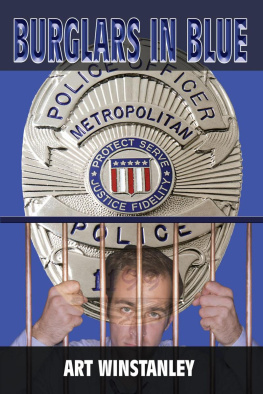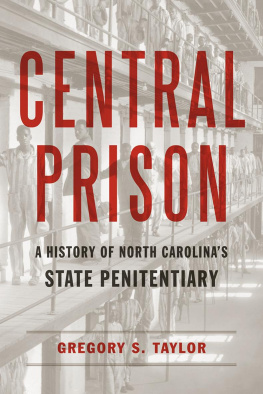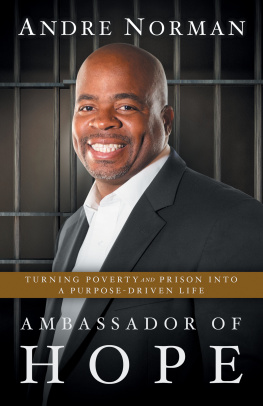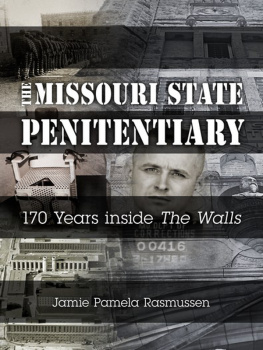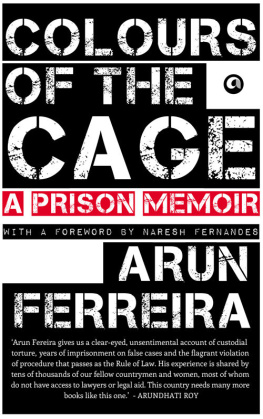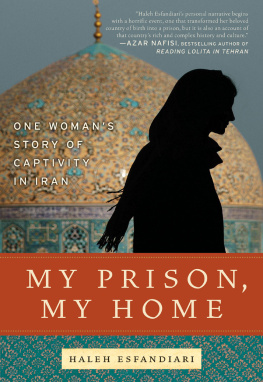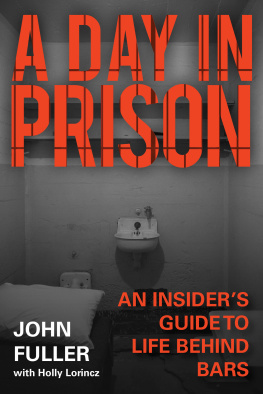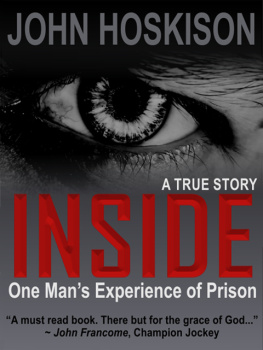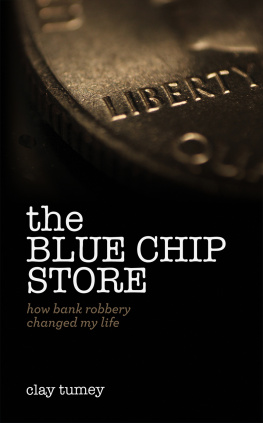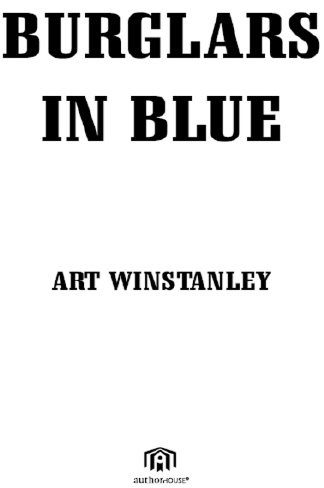
AuthorHouse
1663 Liberty Drive, Suite 200
Bloomington, IN 47403
www.authorhouse.com
Phone: 1-800-839-8640
2009 Art Winstanley. All rights reserved.
No part of this book may be reproduced, stored in a retrieval system, or transmitted by any means without the written permission of the author.
First published by AuthorHouse 2/18/2009
ISBN: 978-1-4389-3069-5 (e)
ISBN: 978-1-4389-3068-8 (sc)
ISBN: 978-1-4389-3067-1 (hc)
Library of Congress Control Number: 2008912149
Printed in the United States of America
Bloomington, Indiana
This book is printed on acid-free paper.
THANK YOU
Thank you to the many acquaintances, friends and family who have encouraged me to write this book. Dredging up memories and regrets from the past has sometimes been difficult. However, writing it all down on these pages has been therapeutic for me. I am grateful.
Most of us deal with struggles and demons in our past. Now that I have opened some dark places in my past and let some light shine in, I have found some inner peace that adds a bit of sparkle to my eyes and spring in my step. I hope I never forget.
PREFACE
During the early 1960s, the Denver Police Department was rocked with a police scandal that was the largest case of police corruption of any law enforcement agency in U.S. history. Out of a total force of 775 officers, 53 were arrested and 45 of those arrested ultimately went to prison.
I was the first Denver police officer arrested and the first to be sentenced to the State Penitentiary in Canon City. Being sent to prison after being a cop is the most terrifying nightmare you can imagine.
After my initial indoctrination and orientation in the fish tank, I was sent to the general population on a Thursday. I didnt get anything to eat until Sunday, and then a fellow inmate spit in my pan.
Contents
THE TRUTH
The events described in this book are true. No names were changed to protect the innocent or the guilty.
All of the dates and times are accurate to the best of my ability to remember and to research. All places described herein actually exist, or did at the time I encountered them.
I have been as forthcoming in these writings as possible. No attempt was made to deceive the reader or embellish the facts.
The author
HOPELESS DESPAIR
The slamming of the steel doors seemed to grow louder and louder. The smell in the cell house was a mixture of Pine Sol, cigarette smoke and body odor.
Oh God, what am I going to do? I knew that going to the state penitentiary after being a police officer was going to be bad, but I can not survive much longer.
I laid motionless, flat on my back, on my prison bunk. I pulled the cotton sheet up over my head as if I were hiding and also so that no one could see the tears run down my face. I had a bad headache from not eating. I never would have imagined that I could feel such total despair. I was even more discouraged than I was when I was arrested by my fellow police officers. There was nothing in my mind but hopelessness overwhelming hopelessness.
Can this really be happening? There are no more chances. Im all out of options. How can I possibly survive this treatment? Why cant the guards see what is happening to me, or do they just not care? This is not a nightmare. I am really hereAnd I am alone
I want to scream out for someone to help me, but the people that would hear my cries are not my friends. I have no friends or allies in here. The guards have no respect for me only distain. I have disgraced the law enforcement community by robbing the people I had sworn to serve and protect.
Perhaps more than some, I hate to be alone. Ive always been a get-along, go-along kind of a guy. Wanting people to like me is one of the reasons Im in here now.
Maybe I should have accepted the wardens offer to do my time in solitary confinement in the isolation unit; at least I would probably get something to eat. This is unbelievable; no one should have to suffer like this. What am I going to do? I dont want to die. I particularly dont want to die locked up in this miserable hell hole.
I thought back to my childhood. We were poor, but I dont ever remember going to bed hungry.
THE BEGINNING
ACCEPTANCE TO
THE POLICE ACADEMY
Saturday, December 21, 1957, was a cool and pleasant Colorado day. Just before noon the letter that I had been waiting for all week finally arrived. It was the happiest day of my life. I thought I was the luckiest guy in the world. I had been accepted into the Denver Police Academy. As a wise man once said, Be careful what you wish for!
Holding my three year old daughter, Joan, in my arms, I danced and whirled all around the house.
Daddys going to be a policeman.
Daddys going to be a policeman.
Do you hear me, Sweetheart? Daddys going to be a policeman.
The acceptance process had taken several weeks. First, there was the application, then a background check, a general knowledge and aptitude test, a physical agility test, and an oral interview. I was one of the top candidates offered a position as a cadet with the department.
The police academy started on Wednesday, January 15, 1958. The academy always started on the 15 th day of the month to coincide with the pay period. There were 32 male cadets and no women in my class.
Police academies in the 50s and early 60s were woefully inadequate by todays standards. The psychology of police work was not taught. The skills needed in dealing with people as a police officer were not addressed. This was before the Miranda decision became law. Suspects were not treated with the degree of presumed innocence as they are now. The Denver Police Department, as well as most police departments during this time was reactionary. There was little or no public education on protecting yourself against crime or preventing yourself from becoming a victim. The police department waited until someone called and then responded in a way they deemed appropriate.
Many men have developed maturity by the time they reach their twenties. Many are mature beyond their years. I was not. I was far too immature to be married or to have children and certainly too immature to be a police officer. I knew how to fight and handle a gun; that was all I needed.
In spite of the many steps it took to become a police officer, the screening process for selection to the police academy was inadequate. The training was incomplete. The pay was low, ($393 a month for patrolmen) and the temptations to be dishonest were great. The process was flawed in as much as there were no psychological checks in place that might weed out unstable applicants. Some, including myself, wanted the job because we were insecure, or had a poor self image. I wanted the authority of the uniform and the recognition. I needed to be in control.
After becoming a police officer, I thought I had all the answers. I certainly had an abundance of confidence. I thought that money was the answer to everything. Someone once said that people who think money will do anything will probably do anything for money. During this time in my life, I knew the price of everything, and the value of nothing.
I admired all the policemen. I wanted to be one of them. I wanted the power and the authority they had. To serve and protect was not part of my agenda. I wanted to be a policeman for my own entertainment and excitement. I wanted to be a policeman for my own personal and selfish gain. I wanted to be a policeman for all the wrong reasons.
For nearly fifty years, I have been processing my involvement in the Denver police scandal and why I took part in it. For a long time, friends have encouraged me to write a book. I doubt that I could have been objective and honest in my writing before now. I have spent so much time trying to justify my involvement and making excuses for my behavior in what happened.
Next page
